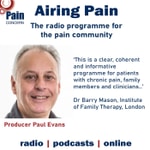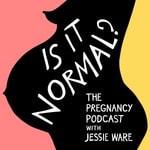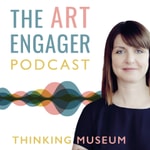Airing Pain – Détails, épisodes et analyse
Détails du podcast
Informations techniques et générales issues du flux RSS du podcast.

Airing Pain
Airing Pain
Fréquence : 1 épisode/33j. Total Éps: 158

Classements récents
Dernières positions dans les classements Apple Podcasts et Spotify.
Apple Podcasts
🇬🇧 Grande Bretagne - medicine
25/06/2025#99🇬🇧 Grande Bretagne - medicine
21/06/2025#90🇬🇧 Grande Bretagne - medicine
20/06/2025#52🇬🇧 Grande Bretagne - medicine
15/06/2025#66🇬🇧 Grande Bretagne - medicine
14/06/2025#42🇬🇧 Grande Bretagne - medicine
04/06/2025#99🇬🇧 Grande Bretagne - medicine
10/05/2025#69🇬🇧 Grande Bretagne - medicine
02/05/2025#81🇬🇧 Grande Bretagne - medicine
20/04/2025#77🇬🇧 Grande Bretagne - medicine
28/03/2025#100
Spotify
Aucun classement récent disponible
Liens partagés entre épisodes et podcasts
Liens présents dans les descriptions d'épisodes et autres podcasts les utilisant également.
See all- https://www.mind.org.uk/
585 partages
- https://www.macmillan.org.uk/
53 partages
- https://www.refuge.org.uk/
39 partages
Qualité et score du flux RSS
Évaluation technique de la qualité et de la structure du flux RSS.
See allScore global : 84%
Historique des publications
Répartition mensuelle des publications d'épisodes au fil des années.
145: Rethinking Pain: Pain Management in the Community
Épisode 145
mercredi 14 août 2024 • Durée 38:03
This edition of Airing Pain centres on rethinking the traditional clinician-patient relationship in pain management and exploring alternative approaches to bringing pain management back into the community.
Dr Barbara Phipps, GP and Lifestyle Medicine expert, discusses the development and benefits of group consultations for pain management.
Dr Jackie Walumbe sheds light on the pervasive inequalities in chronic pain services, highlighting the value of communities and member-led collaboratives in building and shaping self-management.
Prof. Mark Johnson, Dr Kate Thompson, and Kerry Page talk through the benefits of de-medicalising pain management, shifting the focus to a community setting.
We hear about the fantastic work of Rethinking Pain, a community-based pain support service in Bradford and Craven, and the inspiration this can serve for future chronic pain services and self-management initiatives.
The interviews were recorded at the British Pain Society’s Annual Scientific Meeting, 2024.
Contributors:
Dr Barbara Phipps, Practising NHS GP and Teaching Fellow at the University of Edinburgh, currently running a community based Chronic Pain management service within the NHS. Barbara has a special interest in Lifestyle Medicine, and is a trustee of the British Society of Lifestyle Medicine.
Dr Jackie Walumbe, Clinical Academic Advance Practice Physiotherapist in the Complex Pain Team at University College London Hospitals NHS Foundation Trust and Honorary Research Fellow at University of Oxford.
Professor Mark Johnson, Professor of Pain and Analgesia and Director of the Leeds Beckett Pain Team (Centre for Pain Research) at Leeds Beckett University.
Dr Kate Thompson, Senior Lecturer and Researcher at Leeds Beckett University, with a background in physiotherapy and special interest in pain research.
Kerry Page, Programme Lead for Rethinking Pain, the chronic pain community service based in Bradford District and Craven.
Time Stamps:
01:58 Paul introduces Dr Barbara Phipps, Practising NHS GP and Teaching Fellow at the University of Edinburgh, currently running a community based Chronic Pain management service within the NHS. Barbara has a special interest in Lifestyle Medicine, is and is a trustee of the British Society of Lifestyle Medicine.
02:27 Dr Barbara Phipps discusses the development of group consultations for people with long-term primary pain.
07:28 Paul and Barbara discuss the importance of people being believed about their pain, perception of pain experiences, and detection on functional MRI scans.
10:41 Paul draws upon issues the funding in pain management services and who decides whether a treatment programme is value for money or not.
10:53 Paul introduces Dr Jackie Walumbe, Clinical Academic Advance Practice Physiotherapist in the Complex Pain Team at University College London Hospitals NHS Foundation Trust and Honorary Research Fellow at University of Oxford.
11:04 Dr Jackie Walumbe discusses her research on understanding how the term and practice of Self-Management is understood and acted on by people living with chronic pain, particularly those who don’t have ongoing contact or access with specialist pain services, and the relationship between this and policy makers’ decisions.
14:42 Paul and Jackie discuss key findings regarding issues of inequality, and a report by Versus Arthritis (Unseen, Unequal and Unfair: Chronic Pain in England), reflecting issues of policy and politics and the importance of other communities in filling the gaps.
18:09 Paul introduces Rethinking Pain, a community-based service for adults living with long-term pain, in Bradford District and Craven.
18:28 Paul introduces Dr Mark Johnson, Professor of Pain and Analgesia and Director of the Leeds Beckett Pain Team (Centre for Pain Research) at Leeds Beckett University.
18:37 Paul introduces Dr Kate Thompson, Senior Lecturer and Researcher at Leeds Beckett University, with a background in physiotherapy and special interest in pain research.
18:40 Paul introduces Kerry Page, Programme Lead for Rethinking Pain, the chronic pain community service based in Bradford District and Craven.
18:47 Kerry Page discusses the Rethinking Pain service, its background, services, and success.
19:57 Dr Kate Thompson explains how Rethinking Pain’s approach differs from other community pain management programmes
20:58 Dr Mark Johnson talks about how pain is a context driven experience, and the importance of understanding how the narrative matters when it comes to managing pain.
25:49 Kerry Page recalls the importance of giving time to listen to the pain community and those living with chronic pain, and the way that Rethinking Pain’s initiative provides this through Health Coaches.
35:53 Kerry page discusses how pain management services can help to reach more people and connect people and organisations from across the pain community.
Additional Resources:
Rethinking Pain
Inequalities in Chronic Pain Report - Versus Arthritis
If you have any feedback about Airing Pain, you can leave us a review via our Airing Pain survey
_______________________________________________________________________________________________
Trail - Airing Pain 145: Rethinking Pain: Pain in the Community
mercredi 7 août 2024 • Durée 00:57
Is the 1-to-1 doctor-patient consultation the best we can do? How can we help people to feel more empowered in managing their own pain? Our contributors are experts in pain management, research, and community engagement; find out what they have to say in the latest edition of Airing Pain, coming soon.
The interviews were recorded at the British Pain Society’s Annual Scientific Meeting, 2024.
Contributors:
Dr Barbara Phipps, Practising NHS GP and Teaching Fellow at the University of Edinburgh, currently running a community based Chronic Pain management service within the NHS. Barbara has a special interest in Lifestyle Medicine, and is a trustee of the British Society of Lifestyle Medicine.
Dr Jackie Walumbe, Clinical Academic Advance Practice Physiotherapist in the Complex Pain Team at University College London Hospitals NHS Foundation Trust and Honorary Research Fellow at University of Oxford.
Professor Mark Johnson, Professor of Pain and Analgesia and Director of the Leeds Beckett Pain Team (Centre for Pain Research) at Leeds Beckett University.
Dr Kate Thompson, Senior Lecturer and Researcher at Leeds Beckett University, with a background in physiotherapy and special interest in pain research.
Kerry Page, Programme Lead for Rethinking Pain, the chronic pain community service based in Bradford District and Craven.
If you have any feedback about Airing Pain, you can leave us a review via our Airing Pain survey
138: Dance, Chronic Pain and Self-Compassion
Épisode 138
mercredi 30 août 2023 • Durée 41:41
Self-compassion, in this sense, is the ability to respond to pain and difficulties with kindness and openness rather than criticism. In this episode we ask our artistic contributors, and ourselves, how to step towards achieving self-compassion and the importance of movement in looking after our bodies.
This edition of Airing Pain was made possible by the invaluable contributions of our participating artists who showcased their works at the Edinburgh Fringe Festival, and those in the academic field. We learn the motives behind using dance as a way of supporting those in pain, but also expressing and communicating pain to audiences.
Contributors:
Dr Sarah Hopfinger, Artist and Researcher (Edinburgh Fringe: “Pain and I”)
Victoria Abbott-Fleming MBE, Founder of the Burning Nights CRPS
Dr Emma Meehan, Associate Professor, Centre for Dance Research, Coventry University
Tali Foxworthy Bowers, Choreographer and Movement Director (Edinburgh Fringe: “Monoslogue”)
Jenna Gillett, PhD Student, Department of Psychology University of Warwick
The music used at the beginning of this edition was an original composition for Pain & I by Alicia Jane Turner.
Images provided by Sarah Hopfinger.
Read transcript
Time Stamps:
1:35 – Miriam Introduces Sarah Hopfinger’s “Pain and I” performance during Edinburgh’s Festival Fringe, and asks what techniques from the world of dance offer those living with pain?
3:41 – Pacing as a technique. Also see 13:25 for Sarah Hopfinger on pacing.
6:34 – Emma Meehan, at the British Pain Society, on how dancers living with pain approach pain.
8:34 – Introducing Tali Foxworthy-Bowers
15:54 – A huge thank you, and invitation, for filling in our survey
16:20 – Emma Meehan and research into what somatic practices in movement can offer those living with pain.
18:20 – The importance of sharing and telling stories about pain experiences as an act of self-compassion for performers, and mutual connection. See also 25:53 for a continuation of this sentiment from Tali Foxworthy Bowers.
21:25 – Pain catastrophising, how we frame pain, and techniques for being kinder to ourselves with self-love and compassion.
27:54 – Suggestions of how to support those close to you who are living with pain.
31:34 – Emma Meehan discussing agency with pain, as showcased at the British Pain Society ASM 2023.
35:10 – The role of charities in patient support, and what else can charities be doing?
37:27 – Chronic pain is chronic strength: acceptance of pain as part of the bodies we love and care for.
Additional Resources:
Burning nights
NHS Resources
Somatic Practice
Dr Meehan's Book: Performing Process
48: Nursing Beyond Drugs
Épisode 48
mercredi 20 novembre 2013 • Durée 29:39
'Imagine how it feels like if you’re in pain and people won’t help you.'Like other healthcare professionals, nurses can sometimes struggle to understand the perspective of people living with pain. At a training day for student nurses devoted to chronic pain, Gareth Parsons impresses on his audience the importance of believing the patient and delivers some uncomfortable truths based on his research about the frustrations people with pain often have of healthcare professionals: ‘you are the problem!’
Equipped with the training they receive, hopefully this group of nurses will instead be part of the solution. The first step is understanding that chronic pain is a condition in its own right – this way the nurses will be aware of the problems of treating chronic pain as if it were acute (for example, excessive use of opioids) and be able to help tackle anxiety and fear.
With a better sense of the nature of chronic pain, nurses will be less likely to ‘throw drugs’ at the problem, Owena Simpson says. She guides the student nurses in a session of relaxation therapy, while Maria Parry teaches the students basic massage techniques and recalls her own experiences of how a patient of hers was able to overcome insomnia thanks to massage therapy. Gareth Parsons finishes the session with an acupuncture lesson and explains why this treatment may be more effective for some patients than for others.
Contributors:
- Gareth Parsons, Senior Lecturer in Adult Nursing, University of Glamorgan
- Maria Parry, Senior Lecturer in Palliative Care, University of Glamorgan
- Owena Simpson, Senior Lecturer in Adult Nursing, University of Glamorgan.
47: The Power of the Mind
Épisode 47
mercredi 6 novembre 2013 • Durée 29:21
In this edition of Airing Pain Paul Evans explores the possibility of controlling pain through techniques that focus on the brain and the mind.
Paul meets Aleksandra Vuckovic, a rehabilitation engineer at the Southern General Hospital in Glasgow, who is conducting research into the use of neuro-engineering techniques to control chronic pain in those with injuries to the central nervous system. She explains that neuro-engineering works through patients training themselves to identify the part of their brain that controls their pain and then reducing it using brain waves. One of her patients, Andy Nisbet, shares his own experience of the technique and discusses the potential for future advancements in this method.
Paul also speaks to Vidyamala Burch, founder and director of Manchester-based organisation Breathworks, which offers training for healthcare professionals and individuals in mindfulness-based approaches to chronic pain. She introduces us to the mindfulness technique, which fuses modern medicine with age-old eastern practices, and talks about the advantages of becoming aware of emotional and physical states as they occur. Burch explains that mindfulness allows people to identify the behaviour patterns related to their suffering and to make a conscious choice about that behaviour. This technique impacts on all areas of a person’s life: allowing them to reduce stress, maintain good relationships with those around them and increase their self-esteem.
Contributors:
- Aleksandra Vuckovic – rehabilitation engineer, Southern General Hospital, Glasgow
- Andy Nisbet – patient undergoing neuro-engineering
- Vidyamala Burch – founder and director of mindfulness organisation Breathworks.
46: Post-Herpetic Neuralgia and Migraine
Épisode 46
lundi 28 octobre 2013 • Durée 29:56
Migraine is not ‘just a headache’ – it’s a disabling condition that can cause major disruption to work and personal life. So says David Watson, a GP who specialises in treating patients with chronic headaches.
Dr Watson explains that the ‘migraine brain’ is extra sensitive to changes in the environment, how small changes to lifestyle can help people to minimise episodes and how to avoid the pitfall of medication overuse. He also gives helpful advice on how patients with migraine can best prepare for a visit to their GP.
Post-herpetic neuralgia is another frequently misunderstood condition with myths about its contagiousness and relationship to chickenpox and shingles causing confusion. Marian Nicholson of the Shingles Support Society clears up these misunderstandings and emphasises the importance of preventative treatments. We also hear about a new vaccine which should help to protect older people who are most at risk of developing post-herpetic neuralgia after shingles.
Contributors:
- David Watson, General Practitioner, Aberdeen and Chair of the SIGN Guideline on Headache
- Marian Nicholson, Director of the Shingles Support Society.
45: Helping Us to Help Ourselves
Épisode 45
jeudi 6 juin 2013 • Durée 29:37
Healthcare professionals and people with pain need to work together to manage chronic pain conditions, but how is this achieved in practice? Paul Evans speaks to a GP, physiotherapist and clinical psychologist to find out more.
We begin by hearing from GP and pain specialist Neville McMullan about his work with Ulster Hospital to improve access to pain management programmes by bringing them out of the hospital into the community and giving people the skills to manage their own pain.
Dr McMullan stresses the importance of getting patients out of a cycle of inactivity and physical deterioration. This is where physiotherapy comes in as we hear from Ashley Montgomery, a physiotherapist at Ulster Hospital. Montgomery describes how understanding the reality of chronic pain, being believed and getting the balance between rest and activity right can give people confidence to take the first steps towards self-managing their condition.
Consultant Clinical Psychologist Jenny Maguire explains how acceptance and commitment therapy (ACT) builds upon CBT (cognitive behavioural therapy) to help people adjust to living with pain as a long term condition.
Contributors:
- Dr Neville McMullan, GP, Belfast
- Ashley Montgomery, Physiotherapist, Ulster Hospital
- Jenny Maguire, Consultant Clinical Psychologist.
44: Pain Management at Both Extremes of Life
Épisode 44
mercredi 22 mai 2013 • Durée 29:23
In this edition of Airing Pain, Paul Evans speaks to experts from Belfast and London about the similarities, differences and challenges in treating pain in infants and the elderly.
Maria Fitzgerald, Professor of Developmental Neurobiology at University College London, mentions the outdated theory that babies do not experience pain and how this misconception has been disproved. She raises the issue of communication, perhaps the biggest problem with babies and the elderly (particularly those with dementia) - if they cannot communicate about their pain effectively, their pain often cannot be adequately addressed. She also discusses the scientific research she and her team are carrying out as well as the importance of treating pain at an early age.
Paul speaks to Dr Pamela Bell, Chair of the Pain Alliance of Northern Ireland and former Lead Clinician for Pain Services at the Belfast Trust. She discusses how pain treatments work for infants and the consequences of not managing pain during the early stages of their development.
Peter Passmore, Professor of Aging and Geriatric Medicine at Queen’s University Belfast, talks to us about the large number of dementia patients who are thought to live with pain and the need for medical staff and carers to be able to recognise changes in the patients’ behaviour and therefore become more able to address their pain.
Contributors:
- Maria Fitzgerald, Professor of Developmental Neurobiology at University College London
- Dr Pamela Bell, Chair of the Pain Alliance of Northern Ireland and former Lead Clinician for Pain Services at the Belfast Trust
- Peter Passmore, Professor of Aging and Geriatric Medicine at Queen’s University Belfast.
43: Patient Involvement and Pain Management
Épisode 43
mercredi 8 mai 2013 • Durée 29:47
In this edition of Airing Pain, Paul Evans travels to Northern Ireland to visit a patients’ organisation, the Patient and Client Council. The Council provides patients with an independent voice in the health and social care system by involving those who live with chronic pain in the decision-making process and supporting patients who wish to make a complaint, with the overall aim of improving patient services in Northern Ireland.
Louise Skelly, Head of Operations at the Council, describes her organisation’s work promoting information and advice across the healthcare system and using patients’ experience, suggestions and stories to raise awareness of chronic pain. She highlights some of the advances and improvements that the Council has brought about in recent years.
Paul also speaks to pain patient and member of the Patient and Client Council’s pain strategy group, Jay Flood Coleman, who shares his own personal experiences of chronic pain which has been complicated further by a series of health issues.
Board member of the Patient and Client Council, Rena Shepherd, who herself lives with chronic pain, contributes with her first-hand expertise and explains that with little adjustment on the part of employers, employees suffering from long-term pain conditions can still work full-time and be productive, with self-management pain courses proving very beneficial.
Contributors:
- Louise Skelly, Head of Operations at The Patient and Client Council
- Jay Flood Coleman, patient and Council strategy group member
- Rena Shepherd, board member of the Patient and Client Council
42: Endometriosis and Support Groups
Épisode 42
mercredi 24 avril 2013 • Durée 29:28
Paul Evans visits an endometriosis support group in Belfast, and interviews founder Anna Jaminson and guest speaker gynaecologist Dr David Hunter.
Dr Hunter discusses the research about how endometriosis develops and people living with the condition describe their experience in depth, including the impact upon personal relationships with family and friends. Members of the support group talk of their immense relief at finding people with similar stories to share.
We hear about the difficulties in diagnosing endometriosis – often mistaken for other conditions such as Irritable Bowel Syndrome – but also about some recent improvements to its management and the crucial role of sympathetic healthcare professionals.
We also learn more about surgical treatments and their likely prognoses, including hysterectomy, and we hear about the physical, psychological and emotional impact of such surgery.
Contributors:
- Dr David Hunter, gynaecologist
- Anna Jaminson, founder of Belfast endometriosis support group
- Linda Harris, group member
- Nuala Campbell, group member
- Robin Atchison, group member
- Louise, group member









